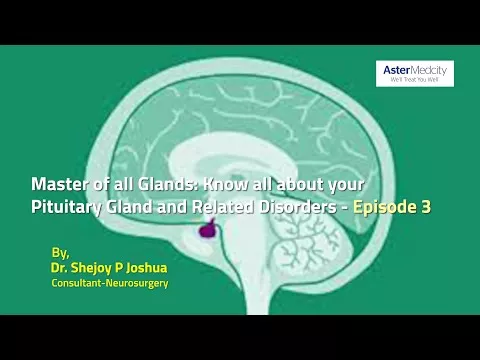What is Radiofrequency Ablation for Trigeminal neuralgia?
Radiofrequency ablation (RFA) for trigeminal neuralgia is a minimally invasive surgical procedure that uses radiofrequency energy to create a lesion on the trigeminal nerve, which can reduce or eliminate pain in individuals with trigeminal neuralgia. During the procedure, a needle electrode is inserted through the cheek and into the trigeminal nerve. The electrode is then heated using radiofrequency energy to create a lesion on the nerve. This lesion can disrupt the pain signals that are being sent to the brain, which can provide relief for the individual's pain.
RFA is typically performed as an outpatient procedure and can be done under local anaesthesia or sedation. The procedure usually takes around 30 minutes to complete, and most individuals can return home on the same day. RFA is considered a second-line treatment option for trigeminal neuralgia, after medications have proven ineffective or intolerable. It may also be considered for individuals who are not good candidates for other surgical procedures, such as microvascular decompression or stereotactic radiosurgery.
Overall, the decision to undergo RFA for trigeminal neuralgia should be made in consultation with a qualified healthcare provider who can help determine if the procedure is the best course of action based on the individual's specific condition and overall health.
Why and when Radiofrequency Ablation for Trigeminal neuralgia is recommended?
Radiofrequency ablation (RFA) for trigeminal neuralgia is typically recommended when other treatments, such as medications, have not been effective in managing the individual's pain or have caused intolerable side effects. RFA may also be considered for individuals who are not good candidates for other surgical procedures, such as microvascular decompression or stereotactic radiosurgery. RFA may be recommended for individuals with typical trigeminal neuralgia, which is characterized by sudden, severe facial pain that can be triggered by activities such as eating, speaking, or brushing the teeth. It may also be recommended for individuals with atypical trigeminal neuralgia, which is characterized by a constant burning or aching pain in the face.
How is Radiofrequency Ablation for Trigeminal neuralgia different from the conventional treatment?
Radiofrequency ablation (RFA) for trigeminal neuralgia is different from conventional treatment in that it is a minimally invasive surgical procedure that targets the trigeminal nerve directly, rather than using medications to manage the individual's pain. Conventional treatment for trigeminal neuralgia typically involves the use of medications, such as anticonvulsants or opioids, to manage the individual's pain. However, these medications can have side effects and may not be effective for all individuals.
RFA is a more targeted approach to treating trigeminal neuralgia, as it uses radiofrequency energy to create a lesion on the trigeminal nerve, which can disrupt the pain signals that are being sent to the brain. This can provide relief for the individual's pain without the need for long-term medication use. RFA is also a minimally invasive procedure that can be performed on an outpatient basis, meaning that the individual can typically return home on the same day. Conventional treatment, such as medications or surgery, may require a longer hospital stay and more recovery time.
Overall, RFA for trigeminal neuralgia offers a more targeted and potentially less invasive approach to managing pain compared to conventional treatment options.
How is life after Radiofrequency Ablation for Trigeminal neuralgia?
The outcomes and recovery after radiofrequency ablation (RFA) for trigeminal neuralgia can vary from person to person. In general, many individuals experience significant pain relief following the procedure, and may be able to reduce or eliminate their need for pain medications. Immediately after the procedure, individuals may experience some soreness or swelling in the area where the needle electrode was inserted, but this typically resolves within a few days. There may also be some temporary numbness or tingling in the face or mouth, but this usually resolves within a few weeks.
In some cases, individuals may experience a recurrence of their pain several months or years after the RFA procedure. In these cases, additional RFA treatments or other surgical options may be considered. Overall, the recovery and long-term outcomes following RFA for trigeminal neuralgia can be positive for many individuals. However, it is important to discuss the potential risks and benefits of the procedure with a qualified healthcare provider and to follow their post-procedure instructions for the best possible outcomes.
FAQs
At Aster Hospitals we provide the highest quality of care and a transformative experience for all your healthcare needs. With our network of multi-speciality hospitals, specialised doctors, and world-class technology, we bring global standards of medical care to our patients.
Is Radiofrequency Ablation the first treatment option for trigeminal neuralgia?
Radiofrequency Ablation is generally considered after other conservative treatments like medications (anticonvulsants) have been unsuccessful or caused intolerable side effects. It is a less invasive option compared to some other surgical procedures, such as microvascular decompression (MVD).
Is Radiofrequency Ablation painful?
The procedure is performed under local anesthesia or light sedation, so the patient should not feel significant pain during the treatment. However, some patients may experience mild discomfort during the procedure.
How long does the Radiofrequency Ablation procedure take?
The procedure usually takes about 30 minutes to an hour to complete.
Is Radiofrequency Ablation a permanent solution for trigeminal neuralgia?
The effectiveness of Radiofrequency Ablation varies from patient to patient. While some individuals may experience long-lasting pain relief, others may require repeat treatments or experience recurrent pain over time.
Blogs
The source of trustworthy health and medical information. Through this section, we provide research-based health information, and all that is happening in Aster Hospital.








